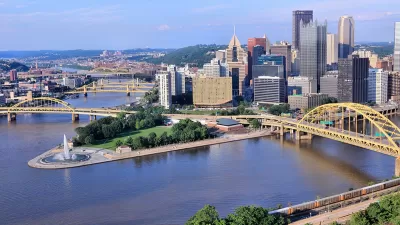The power and process of boards that take control of a city or territory's finances is becoming more generalized, although they affect local democracy, impose austerity measures without controls, and lack mechanisms to evaluate their efficiency.
Regardless of their size or financial problems, U.S. cities under the command of fiscal control boards have faced the firing of public employees, the implementation of pension cuts, increases to the cost of public college education, and a reduction in essential services, such as health. The structures, the laws that create them, and the names of the boards vary; the public policies they impose, not so much.
Despite the normalization of the boards and their commonly broad powers, the federal government and Congress lack control mechanisms, studies, databases, or an entity that actively monitors a fiscal control board's impact or efficiency, the Center for Investigative Journalism (CIJ) in Puerto Rico has found.
“In the United States, there is no centralized information across states [about fiscal control boards],” says Deborah Kobes, author of the thesis Out of Control? Local Democracy Failure and Fiscal Control Boards, published in 2009. “There also isn’t a real definition about what a board is.”
FULL STORY: The Silent Expansion of Fiscal Control Boards in the U.S.

Alabama: Trump Terminates Settlements for Black Communities Harmed By Raw Sewage
Trump deemed the landmark civil rights agreement “illegal DEI and environmental justice policy.”

Planetizen Federal Action Tracker
A weekly monitor of how Trump’s orders and actions are impacting planners and planning in America.

The 120 Year Old Tiny Home Villages That Sheltered San Francisco’s Earthquake Refugees
More than a century ago, San Francisco mobilized to house thousands of residents displaced by the 1906 earthquake. Could their strategy offer a model for the present?

In Both Crashes and Crime, Public Transportation is Far Safer than Driving
Contrary to popular assumptions, public transportation has far lower crash and crime rates than automobile travel. For safer communities, improve and encourage transit travel.

Report: Zoning Reforms Should Complement Nashville’s Ambitious Transit Plan
Without reform, restrictive zoning codes will limit the impact of the city’s planned transit expansion and could exclude some of the residents who depend on transit the most.

Judge Orders Release of Frozen IRA, IIJA Funding
The decision is a victory for environmental groups who charged that freezing funds for critical infrastructure and disaster response programs caused “real and irreparable harm” to communities.
Urban Design for Planners 1: Software Tools
This six-course series explores essential urban design concepts using open source software and equips planners with the tools they need to participate fully in the urban design process.
Planning for Universal Design
Learn the tools for implementing Universal Design in planning regulations.
Clanton & Associates, Inc.
Jessamine County Fiscal Court
Institute for Housing and Urban Development Studies (IHS)
City of Grandview
Harvard GSD Executive Education
Toledo-Lucas County Plan Commissions
Salt Lake City
NYU Wagner Graduate School of Public Service



























